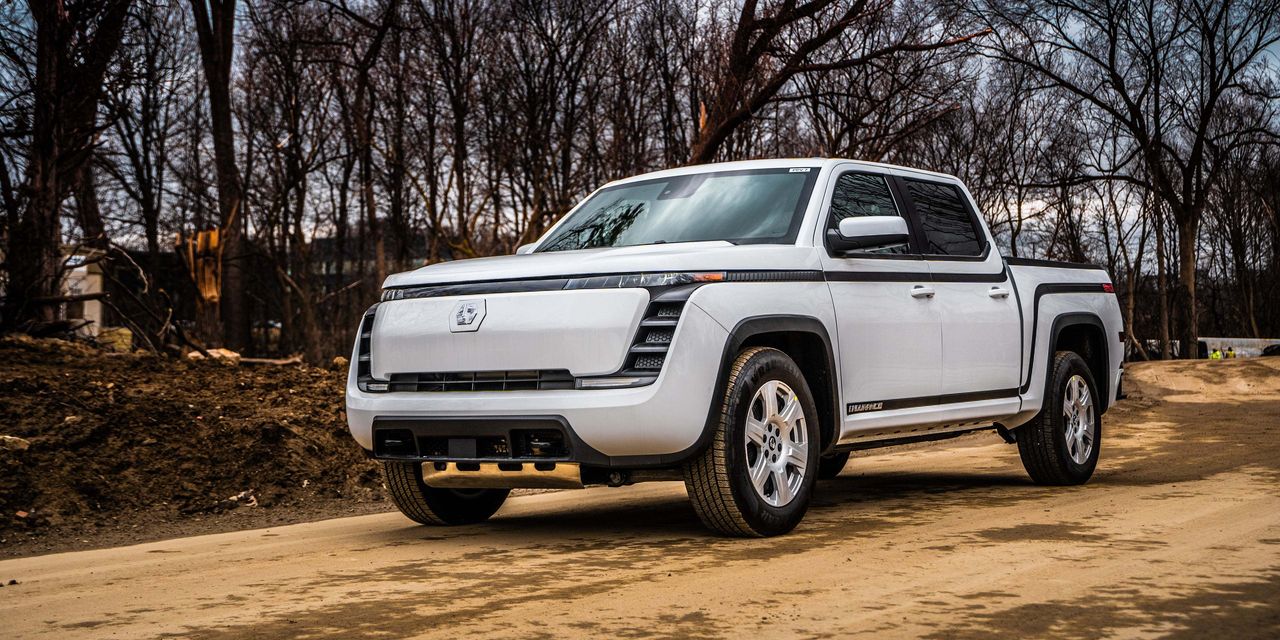Fisker. Lucid. Faraday Future. Nikola
NKLA,
Rivian.
Chances are good you’ve never heard of some of these automakers. Chances are good you’ve never seen one of their cars on the road.
But an American driver in the early days of motoring might not have seen a Davis, a Cord, a Ford
F,
a Buick, or a Coey-Mitchell, either. They would have had no way of knowing which of those companies would still be building cars in our time.
The electrification of the automotive industry has seen a bevy of new startups launch, each hoping to become the established automakers of a century from now. If history is any guide, most of them will fail. But a few will hang on.
“It should not be surprising these companies are burning through cash and piling up losses,” he Washington Post says.
Electric vehicle startups Fisker
FSR,
Lucid
LCID,
and Rivian
RIVN,
have each watched their market values deflate significantly by mid-May.
Automakers must lose money for years to make money
The automotive industry is one of the hardest businesses to break into because of the huge capital expenditures required to reach critical mass. Starting up a new automaker requires outsized outlays of cash and years of losses. If it works, it can result in outsized profits.
Tesla
TSLA,
is today the world’s most profitable automaker and America’s best-selling luxury car brand. But the company saw its first profitable quarter selling cars 18 years after its founding.
The company had sustained itself in the meantime by selling regulatory credits to other automakers. But that option isn’t available to newer rivals. Now that almost every company builds an EV, traditional automakers no longer buy credits.
Michelle Krebs, executive analyst at Kelley Blue Book parent company Cox Automotive, compares it to the early days of the automotive industry. “There was a shakeout of just a few players,” she says, with companies like Ford and General Motors surviving and others, like Davis and Eldridge, disappearing. There will be a similar shakeout of EV builders.
Read more: A Successful EV Start-Up Needs Cars, Capacity, and Cash
EV transition creating opportunities
EV startups have certain advantages the earliest automakers didn’t have.
Today’s EVs are often built on so-called skateboard platforms – flat combinations of batteries, electric motors, steering, and suspension components that can be scaled up or down to build many different types of vehicles.
For instance, General Motors’
GM,
new Ultium platform underlies everything from compact SUVs (like the Chevy Equinox EV) to full-size pickups (the Silverado EV). Within a few years, GM vehicles with prices ranging from $30,000 (the Equinox again) to $300,000 (the Cadillac Celestiq) will use many common parts.
That technology means a startup automaker can design and use one platform to power vehicles in many segments.
Startups can also skip the process of building a dealership network and just sell cars directly to consumers, Tesla-style.
But the cost of entry remains punishingly high. “With capital significantly more expensive today [and] an interest rate environment moving up, we’re seeing more EV players squeezed,” says Wedbush analyst Dan Ives.
A good product isn’t enough
Successful design isn’t enough. The Endurance pickup from startup Lordstown Motors
RIDE,
was a finalist in the 2023 North American Car of the Year awards in the truck category. The company still warned investors recently that it may close its doors soon.
Lucid’s Air sedan has won rave reviews and holds the title of longest-range EV (it’s EPA-certified for up to 520 miles depending on configuration). Last week the company reported a first-quarter loss of nearly $780 million. The company said it ended the quarter with about $4.1 billion in total liquidity, which it expects to provide funding “at least into the second quarter of 2024.”
See also: Fisker cuts production guidance, posts wider loss than expected
Rivian is in better shape temporarily, ending the quarter with about $11.2 billion in cash and equivalents. But the company reported losses of $1.3 billion last quarter.
Cox Automotive, parent company of Kelley Blue Book and Autotrader, is a minority investor in Rivian.
“New players always underestimate how much it costs to start a car company,” Krebs says. “There surely will be failures because so many have started up, and the times have drastically changed.”
This story originally ran on KBB.com.
Read the full article here













